In My Sporting Hero, a new podcast series from Nutmeg, footballers talk about the athletes who inspire them. Sometimes those sportsmen and women are also footballers. Sometimes not. You can listen to the audio on this post, on the podcast app of your choice (just search for ‘My Sporting Hero’) or enjoy the written version below.
Our next guest is Pat Stanton.
Pat spent most of his career at Hibernian, where he became one of the club’s greatest-ever players. A classy and adaptable midfielder, he played over 600 times for Hibs, eventually captaining the mighty Turnbull’s Tornadoes side. Pat won the 1972 League Cup after a final against Jock Stein’s Celtic, and starred in the famous 7-0 demolition of arch-rivals Hearts at Tynecastle in 1973. He is still a regular at Easter Road.
Pat’s sporting hero is the late Joe Baker, who was an outstanding centre-forward in two spells in Leith. As a Hibs-supporting teenager, Pat watched Joe from the terracing before learning alongside the great man.
I had grown up as a Hibs supporter, and I remember as a teenager watching Joe. It wasn’t a great Hibs team that he came into, and he left for Torino in Italy at the same time as Denis Law moved there. It was unusual for British players to leave Scotland or Britain to go abroad in those days, but Joe was a big success there, and later at Arsenal.
Joe was a tremendous footballer, and was someone who the other players looked up to. He was a nice man to speak to, always full of advice for the younger players. For me to eventually end up playing alongside him at Easter Road was terrific. I’ve seen a lot of great players over the years, but Joe Baker could play in any company.
My first game alongside Joe was at Motherwell, and I remember the game because I scored. It was special. It’s incredible to consider that Joe Baker was capped for England while he was still playing at Easter Road. I know it was different times, but that takes a lot of doing. He was very quick, but he knew when to use his pace. Some players would try and run you from the halfway line, so there was always a good chance you could get back to them. But Joe would go on these quick bursts from maybe 20 or 25 yards out, and once he was past you, the next person he faced would be the goalkeeper, and there was no way back. Because he had such a high reputation, teams would set out to intimidate him by being physical, but they were wasting their time with Joe. He was brave, and on the occasions that you did get near him, you couldn’t frighten him. And if you fancied a boxing match, Joe would take you on.
He was a quiet man, but when he said something, it was worth listening to, because he certainly knew a thing or two about the game. He was such a terrific forward that he was able to pass on defensive tips about how to stop players like him. He was also ahead of his time regarding the importance of keeping possession of the ball. And when you’re in your thirties and you’re coming towards the end of your career, you’re still applying these rules, these snippets that Joe had told you all those years before. Sometimes you would ignore his advice, and then later you would get caught out and learn the hard way that he had been right all along.
In training, he would come up to you with the ball quickly and then he would stop, so you would stop too, but just as you were stopping he was away again, so he had caught you flat-footed. My father was a died-in-the-wool Hibs supporter and I told him about this, and how I was considering trying to tackle him and put him off, and my dad replied, “Are you suggesting trying to intimidate Joe Baker? Better players than you have tried it, and it does not work.” And he was right. I would ask my dad how he had enjoyed watching me playing, and he would just say, “It was alright.” He never said anything more than that, even though I might have had a really good game. I spoke to my mother about it and she just said, “He’s happy enough with you, son.”
Joe was always very elegant and smartly dressed. He would wear Italian suits that none of us could afford, and he was a fine-looking man. He was a bit different, but he always respected the manager and there was never any bother with the trainer needing to chase him up for being the last man ready or anything. There are players who will do less than the trainer orders them to, but Joe would say to us that you only take that onto the pitch with you. He advised us to do more that the trainer asked, so that you would take that onto the pitch with you instead. So he set a good example, and if you were a young player trying to make your way, you would say to yourself, if I want to do well here, I’ve got to be more like him.
Joe Baker was just one of those special footballers, someone able to do something during the course of the game that you hadn’t come across before. When Jock Stein was the manager, I remember we played against Real Madrid at Easter Road. All of a sudden I was lined up against Ferenc Puskás, whose photograph I had on my bedroom wall! It was like playing cowboys with John Wayne. During the game, I cleared the ball and Puskás came in a bit late and caught my ankle, causing a cut. After the game, Tom McNiven, the trainer, wanted to bandage it, but I told him I just wanted a sticking plaster, because I wanted to walk down Niddrie Mains Road the next day and say to everyone, “Do you know who did that to my ankle?” I’ve still got the mark on my ankle after all these years!
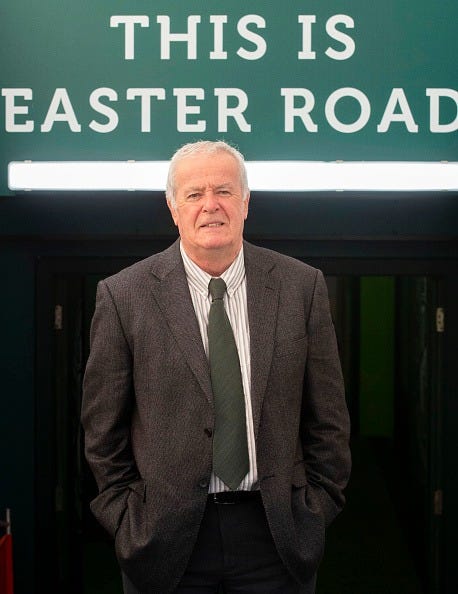
George Best and Kenny Dalglish were other special players, they just saw something before you saw it. You would try to get at them but they were already away, or they had already taken the shot at goal. They just knew instinctively how much time they had and that’s how they got the ball away so quickly. You learn fast with these guys. A lot of young players pick up injuries, and they don’t quite get over them, whereas I was very lucky. My career-ending injury didn’t come until I was in my early thirties, so I had no complaints at all. I was very fortunate regarding the men I played with and against.


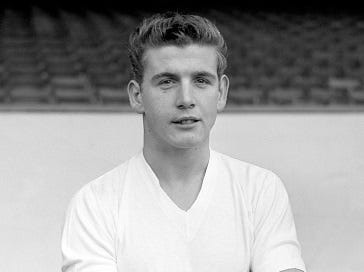
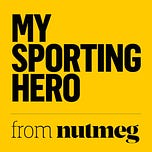

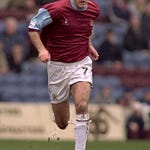
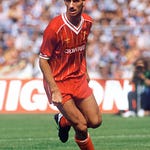






Share this post